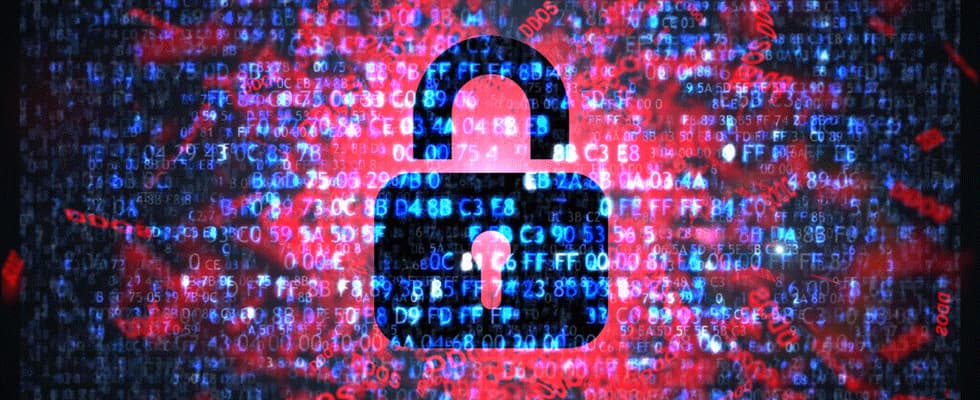
The answer to the question above may depend on where your company is located. For propane companies located in the South, it may be hurricanes. For those located in the West, it may be forest fires. And for those located in the Midwest, it may be tornadoes. Floods and earthquakes may be on other leaders’ minds. Federal Reserve Chairman Jerome Powell had a different viewpoint, however. When Powell was asked what the greatest risk facing the United States economy was in a recent interview on 60 Minutes, he responded, “cyber-risk.”
Government economists and insurance underwriters have been talking about cyber-risk for the past ten years, voicing that businesses both large and small are not immune to cyber threats. There were at least two cyberware ransom attacks in the headlines during April.
The Fairfax County Public Schools in Virginia confirmed it was a victim of a cyberattack that demanded a ransom of $40 million. When that wasn’t paid, the hackers released personal data that impacted 26,000 people. Apple also confirmed that hackers had attacked them and demanded a ransom of $50 million.
What is a cyberattack? One definition describes a cyberattack as “any attempt to expose, alter, disable, destroy, steal or gain information through unauthorized access or make unauthorized use of an asset.”
Recently, the truth that cyber threats can happen to anyone hit close to home. A large fuel distributor had a ransomware attack that wiped out years of personnel, accounting and personal customer records. Then the hackers demanded a huge payout by means of extortion.
The distributor had thought that they were safe. They had changed their passwords. They had hired an IT person who installed the latest and greatest equipment and they were backing up to the cloud. Their sense of well-being soon vanished when they found out that their IT person had failed to back up an entire month’s worth of invoices from accounts receivable.
The nightmare was just beginning for management. What information did the hackers get? Did they get the heart and soul of the company’s information? Did they get customers? Did they get all the personal information stored for current and past employees? What about credit terms offered and contracts between the company and their suppliers? The answer? The hackers had everything.
The immediate response when a cyberattack occurs is turmoil. What do you and your employees do without the computer system? Who do you call first? What steps do you take to get your computer system back up and running? What do you do to prevent the hackers from getting into your backup system and corrupting that too? And what is it going to cost you and your company in lost time and lost business? How much are you going to spend in additional costs? And how are you going to come up with the ransom?
The above scenarios do not just happen to big companies. More and more often, hackers are attacking small to midsize businesses. They are looking for “soft” companies to attack that do not have the technical knowledge to protect their software systems.
Fortunately, there is a solution for propane marketers at risk of a cyberattack. The answer is to purchase a cyber liability policy from an insurance company that specializes in writing and servicing cyber-risk. A good cyber liability policy should contain the following, at minimum:
Breach Response
Notified Individuals — $25,000
Legal, Forensic & Public Relations/Crisis Management — $1,000,000
First Party Loss
Business Interruption Loss
Resulting from Security Breach — $1,000,000
Resulting from System Failure — $1,000,000
Dependent Business Loss
Resulting from Dependent Security Breach — $100,000
Resulting from Dependent System Failure — $100,000
Cyber Extortion Loss — $1,000,000
Data Recovery Costs — $1,000,000
Liability
Data and Network Liability — $1,000,000
Regulatory Defense and Penalties — $100,000
Payment Card Liabilities and Costs — $1,000,000
Media Liability — $1,000,000
e-Crime
Fraudulent Instruction — $250,000
Funds Transfer Fraud — $250,000
Telephone Fraud — $250,000
Criminal Reward
Criminal Reward — $50,000
It’s recommended to buy from an insurance company that specializes in writing cyber liability, because if you experience a digital loss when your cyber liability coverage is a part of your property and casualty policy, your entire package premium could increase substantially.
Secondly, the service from an insurance company that specializes in digital breaches will be superior to those of another company that focuses on property, general liability and automobiles in a package policy.
Premiums for cyber liability insurance are based on annual revenue and are still relatively inexpensive. For the safety of your company and your peace of mind, consider buying cyber liability insurance immediately — even if that means buying the coverage mid-term — because hackers are becoming more brazen in their demands.



